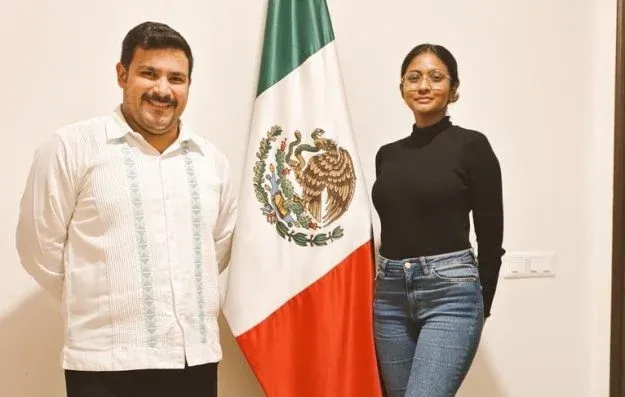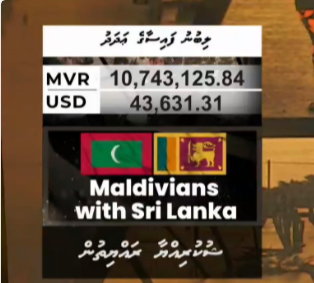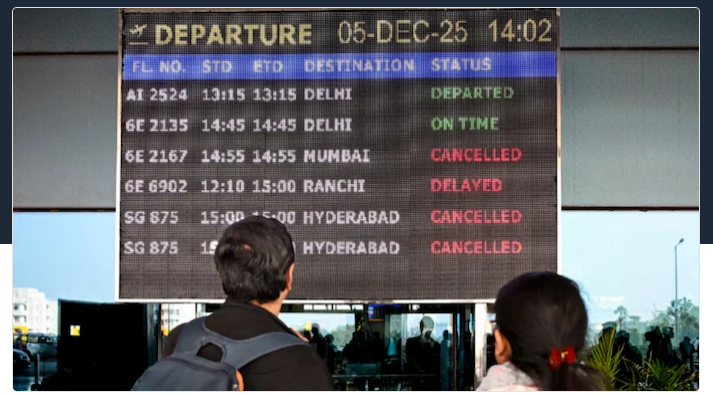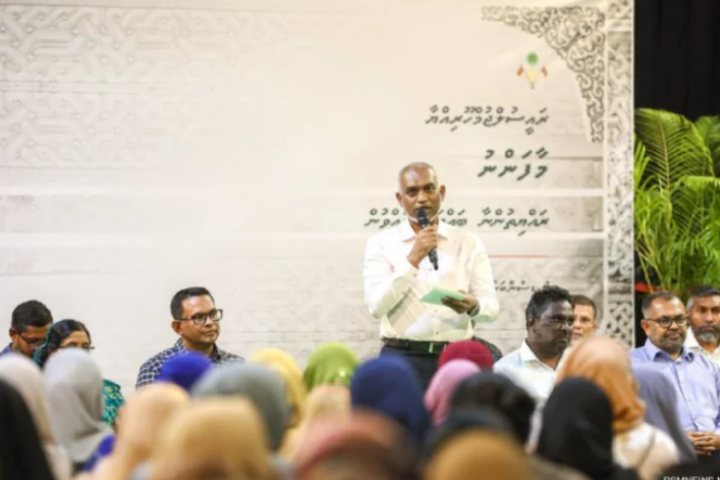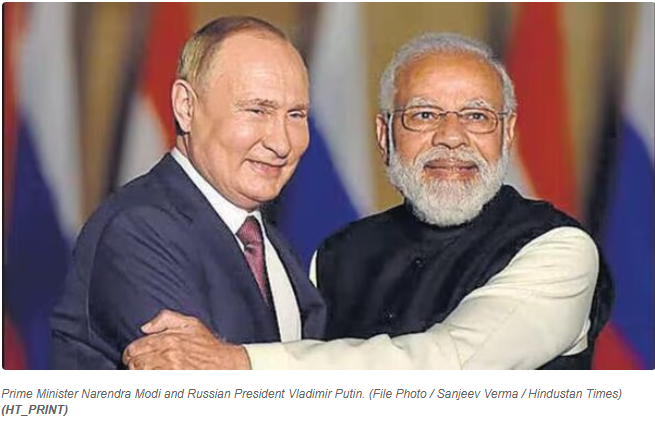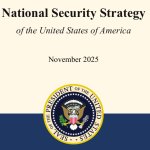MALE’, Maldives — In a paradoxical turn of events that exemplifies the Maldives’ struggle between modernity and tradition, the state-owned Housing Development Corporation in association with Islamic Ministry announced a religious lecture with an unusual incentive: attendees could win an iPhone 16 Pro Max. Meanwhile, the government was rushing to condemn a young woman’s bid to represent the nation on a global stage.
The lecture, titled “There is a supreme being; Be mindful!” by prominent Islamic orator Adam Shameem, represents the kind of state-sanctioned religious expression currently favored in this Indian Ocean archipelago. But when 21-year-old Mariam Shaina Naseem declared her intention to represent Maldives at the 73rd Miss Universe pageant in Mexico, it sparked a fierce national debate about Islam, identity, and women’s rights in the Muslim-majority nation.

“Contests like Miss Universe are against the common moral standards and norms accepted by the people of Maldives,” the Ministry of Youth Empowerment Information and Arts declared in a strongly worded statement, urging media outlets not to associate the government with Ms. Naseem’s participation and calling on her to withdraw.
The controversy has exposed deep fissures in Maldivian society, where religious conservatives wield significant influence. Religious scholar ZamZam Farish, a graduate of Medina Islamic University, who was recently in Xinjiang, China, launched a particularly scathing attack: “The contest where women are naked should not be called Miss Universe. It should be called Miss Jahannam [hell],” he declared, describing participants as “corrupt wicked people who are trying to spread nakedness all over the world for a little money.”
Yet some voices, like politician Hussain Amru, have urged tolerance. “Saudi Arabia is contesting this year,” he pointed out on Twitter. “Muslim women from Bahrain, Lebanon, Egypt, Malaysia and Pakistan among others have contested before. There are adjustments they’re allowed to make for religious and cultural purposes too.”
The pageant, scheduled for November 14-16 in Mexico, will feature contestants from 130 countries, including unprecedented participation from traditionally conservative nations like Somalia, Iran, and the UAE. Belarus, Eritrea, Guinea, Macau, Moldova, Northern Macedonia, and Uzbekistan will also debut this year.
Ironically, the Maldives’ first brush with beauty pageants dates back to 1953, during the progressive regime of first President Mohammed Amin Didi, when the country held its own Miss Maldives competition. That brief experiment with Western-style pageantry ended with Didi’s government, making Ms. Naseem’s bid particularly significant.
The controversy comes at a delicate time for the Maldives. Sometime back, religious activists stormed a yoga session organized by the Indian High Commission, highlighting growing tensions between religious conservatives and those embracing international influences. The government’s promotion of religious lectures with modern incentives — like the Indian-made iPhone giveaway — while condemning beauty pageants has raised questions about the consistency of its cultural positions.
As Ms. Naseem prepares for her historic participation, concerns are mounting about her safety upon return. The absence of moderating voices in the increasingly polarized debate has led some to worry about potential repercussions, raising broader questions about religious tolerance and personal freedom in the Maldives.
“In Islam everything doesn’t fall under haram [forbidden],” noted one social media commentator, pointing to the existence of makrooh [disapproved but not forbidden] categories in Islamic jurisprudence. “Or is each and everything a political matter when it comes to religion?”
The answer to that question may determine not just Ms. Naseem’s future, but the direction of Maldivian society itself, as this nation of 1,192 islands continues to navigate between religious tradition and modern aspirations.
